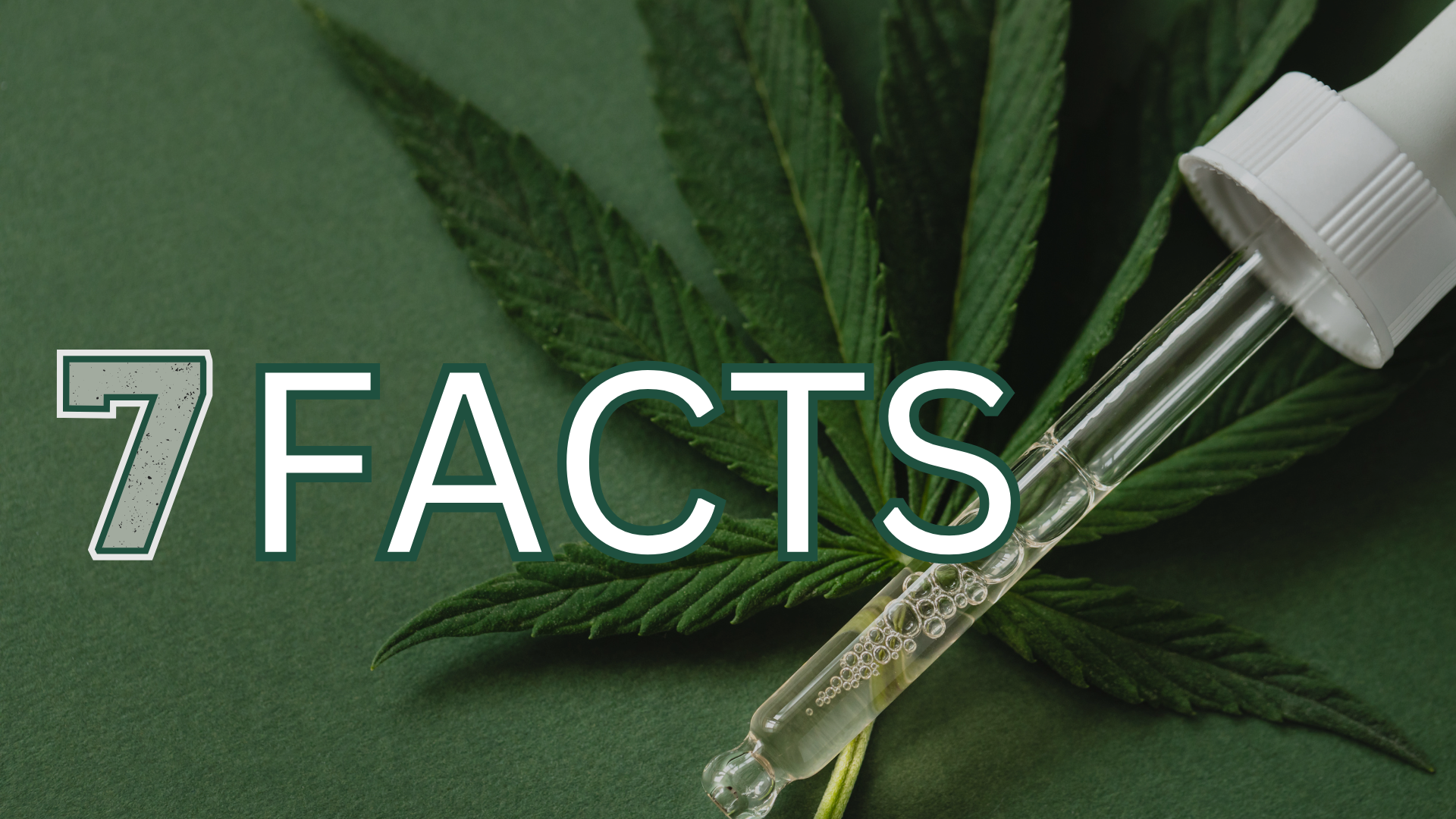As the healthcare industry expands and new trends evolve, medical marijuana has been in the spotlight. Medical marijuana is a rapidly growing sector in healthcare, with millions seeking relief from various ailments. Medical cannabis includes unique compounds like CBD and THC, which hold promise for managing a wide range of conditions. While research is ongoing to fully understand its potential, medical marijuana is gaining traction as a natural approach to wellness. Moreover, marijuana card usage is an important step toward opting for this drug-alternative. However, legal restrictions and possible side effects remain a concern.
This article dives into seven essential facts about medical marijuana. We also discuss how medical marijuana affects the body through various mechanisms.
Medical Cannabis Use in Florida
In the Sunshine State, medical marijuana can be used to manage certain debilitating health conditions. The herb’s medicinal properties, attributed to its various natural components, make it a viable option for managing multiple conditions.
Initially linked to THC, the psychoactive effects can be controlled through regulated marijuana usage. These discoveries in medical marijuana’s potential have spurred increased interest, prompting a high number of individuals to use it for medical purposes alongside typical medications.
Marijuana emerges as a potent therapy for various debilitating illnesses due to its active compounds. Ongoing research highlights marijuana’s role alongside traditional medicines, leading to diverse new products on the market. Nevertheless, obtaining a marijuana card in Florida allows patients to incorporate cannabis into their health regimens.
Am I Eligible for Cannabis Use?
In Florida, access to medical marijuana is limited to patients with qualifying conditions, as specified by the state. This healing drug can help to cope with:
- Anorexia
- Parkinson’s disease
- Sleep cycle issues
- Arthritis
- Hepatitis C
- Irritable Bowel Syndrome
- Migraines
- Chronic pain
- Lyme disease
- Epilepsy
- HIV
- Anxiety
- Alzheimer’s disease
- Chronic and Severe Pain
- Nausea
- Sickle Cell Disease
- PTSD
If you notice any unusual signs of any of the mentioned illnesses, it is recommended to seek expert advice. Moreover, you must note that only a medical marijuana doctor can determine your eligibility for this therapeutic option.
How does marijuana affect the body?
The endocannabinoid system (ECS) is an intricate body system that regulates diverse physiological processes and maintains bodily homeostasis (equilibrium). Interestingly, the essential compounds in marijuana influence the endocannabinoid system (ECS) by producing a calming effect and offering health benefits.
Does THC have health benefits?
Tetrahydrocannabinol being the intoxicating compound reacts with the ECS by binding to CB1 receptors in the brain and CNS. Upon binding to CB1 receptors, THC influences various physiological processes, including mood, hunger, and pain perception.
Beyond its interaction with CB1 receptors, THC indirectly impacts the endocannabinoid system by inhibiting enzymes responsible for the breakdown of endocannabinoids like anandamide. This inhibition leads to elevated endocannabinoid levels in the body, potentially contributing to therapeutic effects associated with THC.
It is crucial to note that while THC holds promise for various health benefits, its psychoactive properties and potential for misuse have sparked controversy and legal restrictions on its usage. However, a medical marijuana doctor can assist patients in opting for this type of treatment.
Role of CBD for Health
Unlike THC, CBD engages with the endocannabinoid system through a more indirect mechanism. It does not directly bind to cannabinoid receptors. However, it interacts with alternative receptors, such as serotonin and TRPV1, affecting mood regulation, pain perception, and inflammation.
Moreover, due to CBD’s exceptional role in different therapeutic applications, including pain management, anxiety, and depression, it can be used for various health problems. Nevertheless, it must be noted that the effects of CBD may vary among individuals. Thus, the role of an MMJ expert is crucial.
Top 7 Facts about Medical Marijuana
Although medical marijuana and its compounds are well-known for their healing nature, there are more hidden facts and benefits of this drug. Read on to explore more about medical cannabis.
1.Ancient Medicinal Roots
Medical Marijuana is not a new-found drug; historical evidence indicates its presence in ancient Chinese, Egyptian, and Greek medicine. Research backs its use more than 5,000 years ago in Romania. Throughout history, diverse cultures have recognized its medicinal properties and incorporated cannabis into remedies for various ailments.
2.Gastrointestinal Relief
Medical Marijuana has demonstrated effectiveness in easing symptoms of gastrointestinal disorders. Moreover, it can provide relief for conditions like irritable bowel syndrome (IBS) and Crohn’s disease.
3.Treatment for PTSD
Based on research, medical marijuana can aid in coping with post-traumatic stress disorder (PTSD). Also, it contains vital ingredients that can ease the mind and help individuals cope with the psychological impact of trauma.
4.Cancer Symptom Management
Beyond its potential anti-cancer properties, medical marijuana can assist cancer patients by easing chemotherapy side effects. Moreover, it contains excellent constituents with antiemetic effects that can address nausea, vomiting, and loss of appetite.
5.Entourage Effect
The entourage effect is a theory that suggests that terpenes and cannabinoids may interact and produce a combined therapeutic effect more significant than the effects of each compound alone. However, more research is required in this area to understand the mechanism of this effect.
6.Neuroprotection
Recent studies indicate that cannabinoids hold promise as neuroprotective agents, potentially offering valuable benefits for conditions such as Alzheimer’s and Parkinson’s diseases. Furthermore, it shows the potential of cannabinoids in safeguarding and supporting neurological health issues.
7.Cannabinoid Diversity
Other than THC and CBD as well-known compounds, there are over 100 cannabinoids in the cannabis plant, each with unique medicinal properties. However, further investigation is needed to learn more about those compounds.
Although there are several beneficial traits of medical marijuana for health, its usage requires an active medical marijuana card. Also, it must be noted that medical marijuana is not an all-rounder drug for any illness. It can only help with symptomatic management. Thus, its dosage should be discussed with a reputable marijuana doctor.
Final Thoughts
Medical Marijuana is a considerable natural treatment option for specific illnesses. It contains vital ingredients with medicinal effects. However, you must speak with a medical marijuana doctor at My Florida Green to use marijuana. Also, getting a valid medical marijuana card in Naples remains the primary step in approaching this type of treatment.














